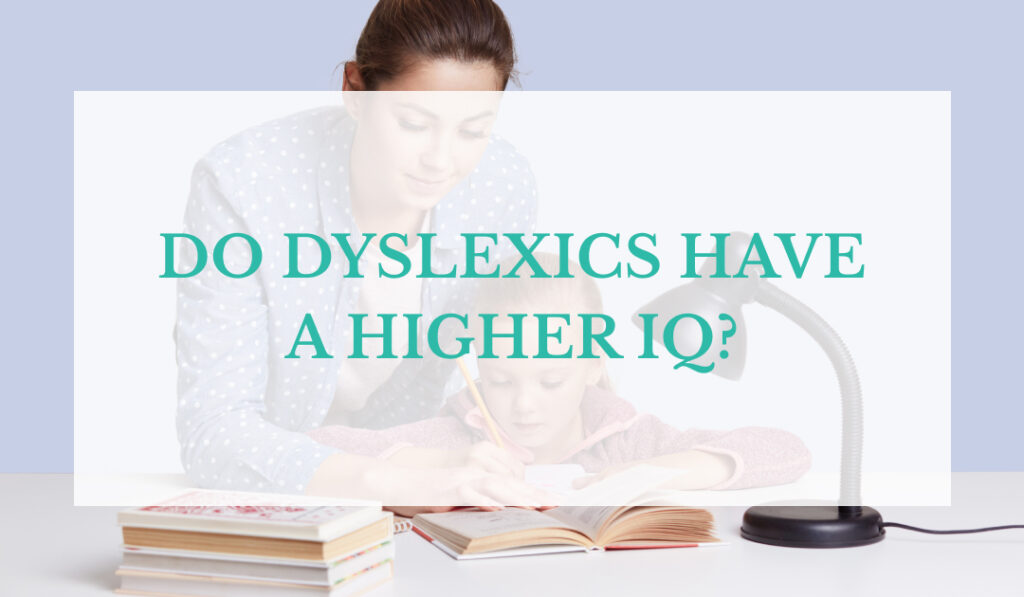Various myths and misconceptions are associated with the condition of dyslexia. One common question is whether dyslexics have a higher IQ than others. This blog post will explore what dyslexia is, how it relates to IQ, and the facts behind this misconception.
What is dyslexia?
Dyslexia is a learning disability. Dyslexic children face difficulties with word recognition, decoding, and poor spelling. Dyslexia affects the way the brain processes written language. It is not related to a child’s intelligence. Intelligence Quotient (IQ) is a measure of one’s cognitive abilities relative to their age group. IQ is used to assess intellectual potential.
Do dyslexics have a higher IQ?
- There is no direct connection between dyslexia and IQ. Dyslexia affects particular areas of learning related to reading and language processing. However, it does not determine a child’s overall intelligence.
- Dyslexic children can have a wide range of IQ levels, just like others. Some dyslexic children may have average IQs, while others may have above-average IQs. Dyslexia doesn’t impact IQ level.
- Dyslexic students often have unique strengths and weaknesses. While they may find it difficult to read, write, and spell accurately, they may excel in other areas such as critical thinking and creativity.
Many individuals assume that dyslexics have a higher IQ due to observations of successful people with dyslexia. Many dyslexics, such as Richard Branson, Albert Einstein, and Steve Jobs, have achieved great success and are known for their high intelligence. However, it is important to recognize that their achievements are not solely due to their dyslexia but rather a combination of their unique talents, determination, and hard work.
What challenges do dyslexic children face?
Dyslexia is a learning disability that most commonly impacts skills in fluent and accurate word reading and spelling. Generally, it involves difficulties with phonological processing, which is the ability to recognize how sounds in a language form words. Here are some challenges faced by dyslexic children:
Reading difficulties
Dyslexic students find it difficult to read fluently without making mistakes. They struggle with identifying words, decoding them, and understanding what they are reading.
Spelling challenges
Children with dyslexia often find it difficult to spell words accurately. Common issues include mixing up words that sound similar or reversing letters.
Phonological awareness
In addition to reading and spelling challenges, dyslexic students struggle with identifying and manipulating sounds within words, such as breaking words into syllables.
Speech challenges
Furthermore, students with dyslexia can experience speech difficulties. They may find it difficult to pronounce words.
Writing difficulties
Children with dyslexia may find it difficult to organize their thoughts on paper or struggle with handwriting.
What is the most effective intervention for helping children with dyslexia?
The Orton Gillingham approach is used as an intervention for helping dyslexic children. In this approach, an Orton Gillingham Tutor engages all the learning senses of dyslexic students, such as seeing, hearing, kinesthetic, and tactile. Tutors continuously monitor the non-verbal, verbal, and written responses of dyslexic children to understand both their progress and challenges.
Dyslexia doesn’t affect a person’s IQ or overall intelligence. It’s important to understand dyslexia and how it impacts learning to give proper support and see the true potential of dyslexic students without believing myths. If your child has dyslexia, our tutors at Class in Session can help using the Orton Gillingham approach.
